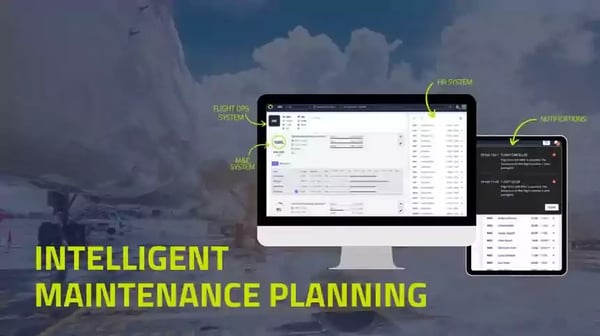The aviation industry has been one of the key benefactors of technology’s rapid evolution over the past few decades. Flight engines have never been more efficient. Emergent aircraft models have been streamlined to near perfection. Even the passenger onboarding experience has been optimized. An IFS survey in 2017 ranked the aviation industry as being more self-confident in its technological progress than the construction, manufacturing, and service industries.
That being said, one aspect of air travel lags behind its peers when it comes to innovation: airline maintenance. Compared with the technological leaps and bounds achieved elsewhere across the aviation industries, the process for airline maintenance has got a lot of opportunities to innovate.
.webp?width=778&height=518&name=iStock-1353864690%20(1).webp)
The Risk of Digitizing Data
Although digitizing airline maintenance would lead to an increase in efficiency, the flipside of that is a greater risk of data breaches. But with the recent advent of blockchain technology, securely tracking data throughout a plane’s life cycle without the risk of tampering has now become feasible. Blockchain may very well play a pivotal role in digitalizing airline maintenance.
Another data-related obstacle for airline maintenance is the lack of data sharing across the industry. Without the necessary levels of collaboration between airlines, innovating maintenance procedures in an effective manner isn’t feasible. For airline maintenance to properly innovate, an industry-wide group effort would need to take place. Currently, some aviation technologies, such as Aviadex.io help airlines and OEMs to exchange and sync data between multiple IT systems.
The workforce requires additional training
Technological innovation within the airline maintenance sector would entail a drastic shift in skills required to do the job. As it stands, much of the maintenance workforce lacks the proper training to operate the new devices and software that technological innovation would bring. With a workforce that might not be as open to change as the rest of the industry, airlines are incentivized to shy away from progress in that area. In addition, training and upskilling the workforce will require funding, time and efforts.
Lack of Funding
From a financial perspective, the short-term benefits of revolutionizing maintenance in the airline industry can be marginal at best. As such, finding the necessary funding to turn these ideas into reality becomes difficult. For emergent technology to make a real dent in the airline maintenance process, the acquisition costs of these revolutionizing products would have to come at affordable costs and with a guarantee of success. Some of the aforementioned obstacles, such as having to train the airline maintenance workforce and protecting data against breaches, only make it more difficult for companies to acquire enough capital to fund their projects.
Moving Forward
Just because airlines have to postpone the implementation of the new technology into their maintenance operations doesn’t mean that the solution doesn’t exist. QOCO’s tooling software MROTools.io leverages new advances in technology to speed up the airline maintenance process in order to save on costs in the long term.


 Ekaterina Vuorinen
Ekaterina Vuorinen
 If you are interested in knowing how you can improve your efficiency in maintenance operations, book a 30-minutes discovery call with us.
If you are interested in knowing how you can improve your efficiency in maintenance operations, book a 30-minutes discovery call with us.

